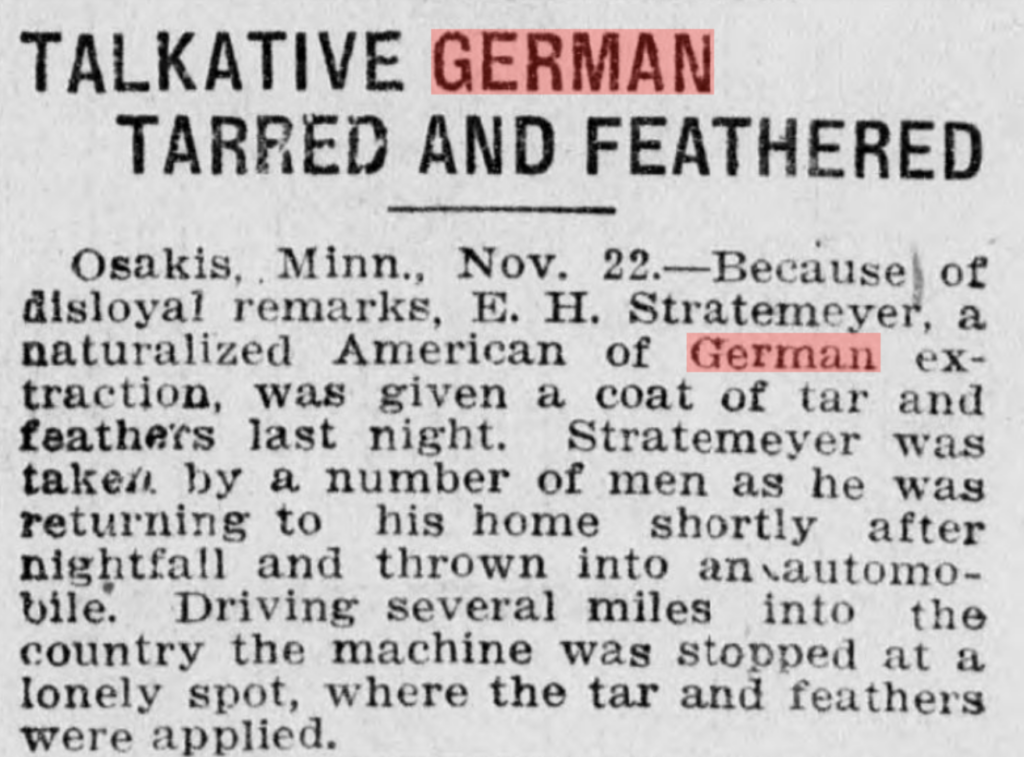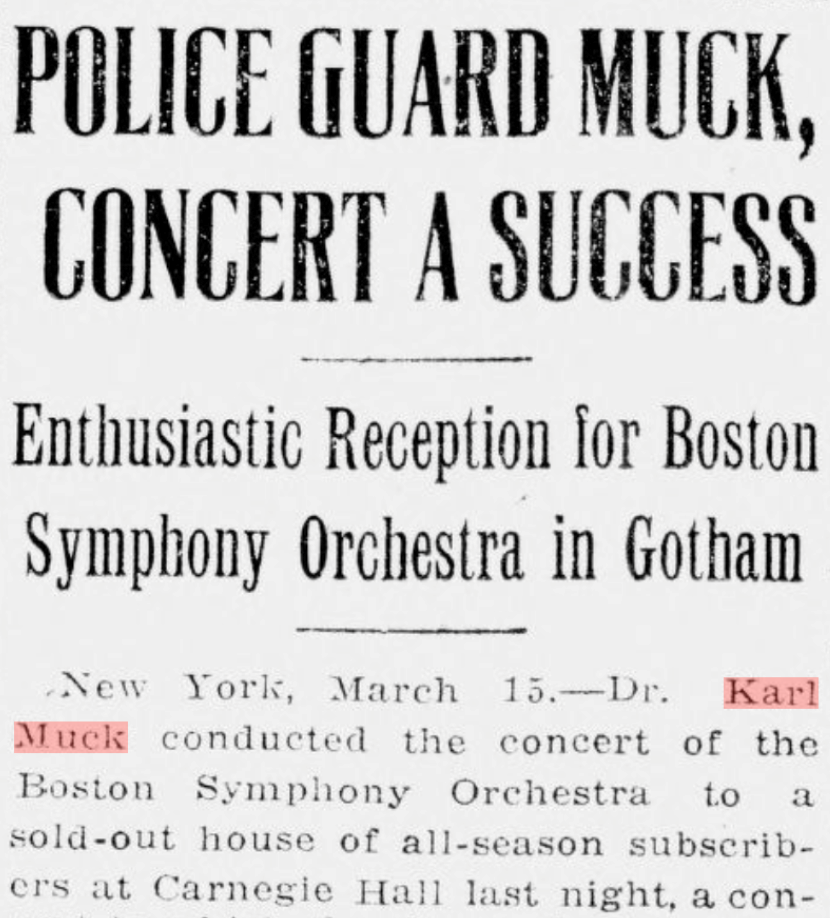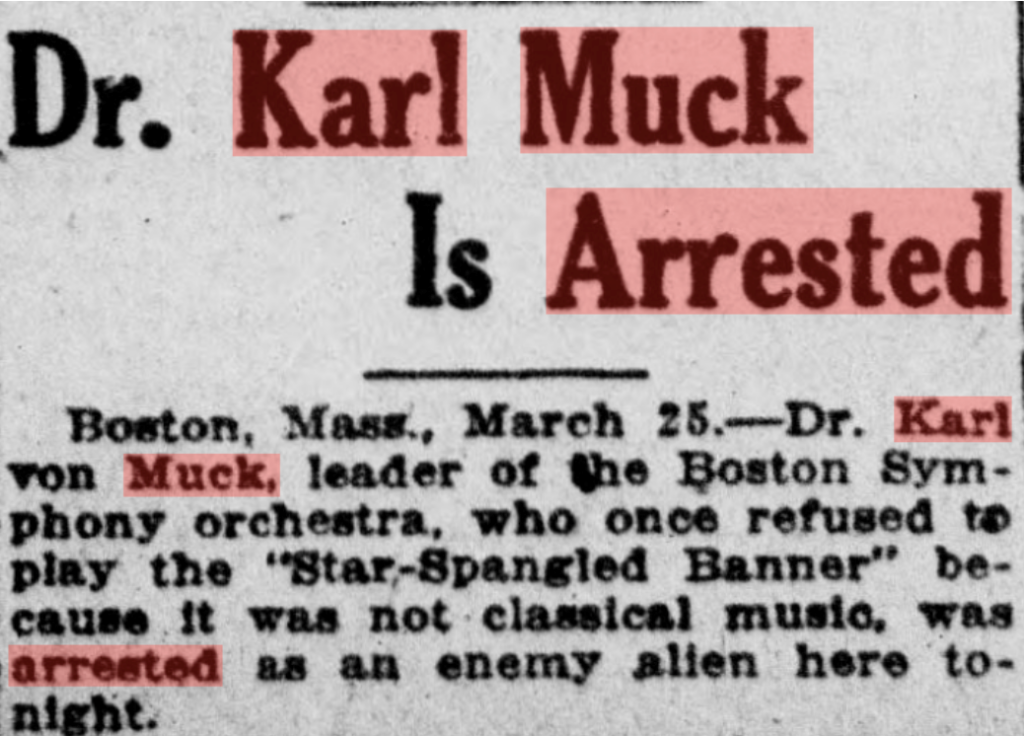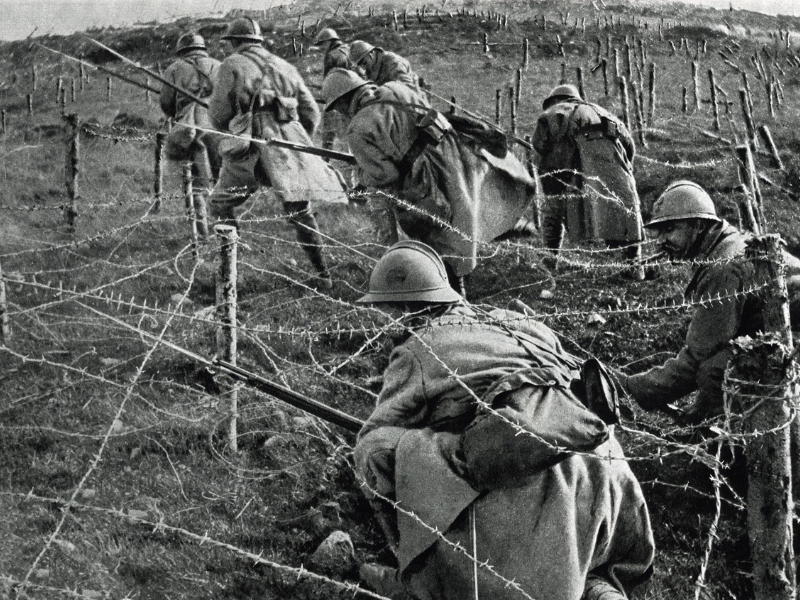During World War I, German born males, aged 14 or older, not naturalized as U.S. citizens, were deemed “enemy aliens.” Many of them were arrested and sent to detention centers. There were two: Fort Oglethorpe, Georgia; and, Fort Douglas, Utah. While there was a superficial resemblance of these detention centers to concentration camps, conditions were humane, and detainees weren’t starved or worked to death.
As to why there were German residents of the U.S. who weren’t naturalized is simple enough. In those days, immigration was largely unregulated, except if you didn’t register an intention to naturalize during your first two years here, you couldn’t naturalize.
Upon the outbreak of war, German-Americans – whether naturalized or not – came under suspicion. Here’s a fellow in our army who was suspected of being a spy because of his accent. He was arrested for associating with “suspicious people,” undoubtedly, other persons who spoke with a German accent.

Here’s another fellow who was tarred and feathered by a bunch of hooligans for unstated “disloyal remarks.”

With respect to hooliganism, sometimes measures were taken to protect prominent German-Americans. The next item describes how New York City stationed both uniformed police at the entrance to Carnegie Hall, and plain-clothes men inside the hall in order to protect the esteemed conductor Karl Muck of the Boston Symphony Orchestra.

But, shortly after that concert, Muck was arrested and then sent to a detention center as an enemy alien.

The truth of the matter is that the U.S. was at war with Germany and – prior to the formal entry of the U.S. into the war – the U.S. was one-sidedly trading the United Kingdom and France.
During the lead-up to the entry of the U.S. into the war, there were explosions at factories, fires aboard ships headed for England, and other apparent acts of sabotage. Was there one or more terrorist cells of Germans and German-Americans in this country? Howard Blum’s Dark Invasion (HarperCollins, 2015) explores the matter.
At the time of the entry of the U.S. into World War I, 9 percent of Americans were born in Germany, and 35 percent were of German descent, by far the largest identifiable group of Americans. German-Americans were industrious, entrepreneurial, scientific, expressive, and patriotic. They were maybe the most Americanized of our immigrant groups. Yes, there were spies and saboteurs among the German-Americans leading up to our entry into World War I, but these were mostly Germans sent here by the Kaiser, not our people.
During the U.S. Civil War, about a quarter of the Union Army consisted of native-born Germans and first-generation German-Americans. Perhaps the most famous German-American of the Civil War was Major General George Armstrong Küster, anglicized as Custer.
During World War I, German-Americans served in the military approximately in line with their percentage of the general population. The most famous German-American of World War I was, of course, General John ‘Black Jack’ Pershing.
But, among German-Americans were pacifists and socialists who opposed U.S. entry into the war. Censorship and other forms of repression were widely adopted; including, at many colleges and universities, loyalty tests.
Following the war, Warren Harding was elected President on a platform of “Return to Normalcy.” German-Americans still held in detention centers were released. Property of Germans seized by the government was returned. Persons arrested for pacifist and socialist advocacy were pardoned or their sentences commuted. Paralleling these actions, colleges and universities adopted codes of academic freedom to protect dissent on campus. Detention and other war-time measures were not “normal” in America.
Only in the late 20th Century was there an effort to obtain reparations for the detention, hooliganism and other abuses suffered by German-Americans during WW1. Although some sympathy was expressed, the effort went nowhere.





